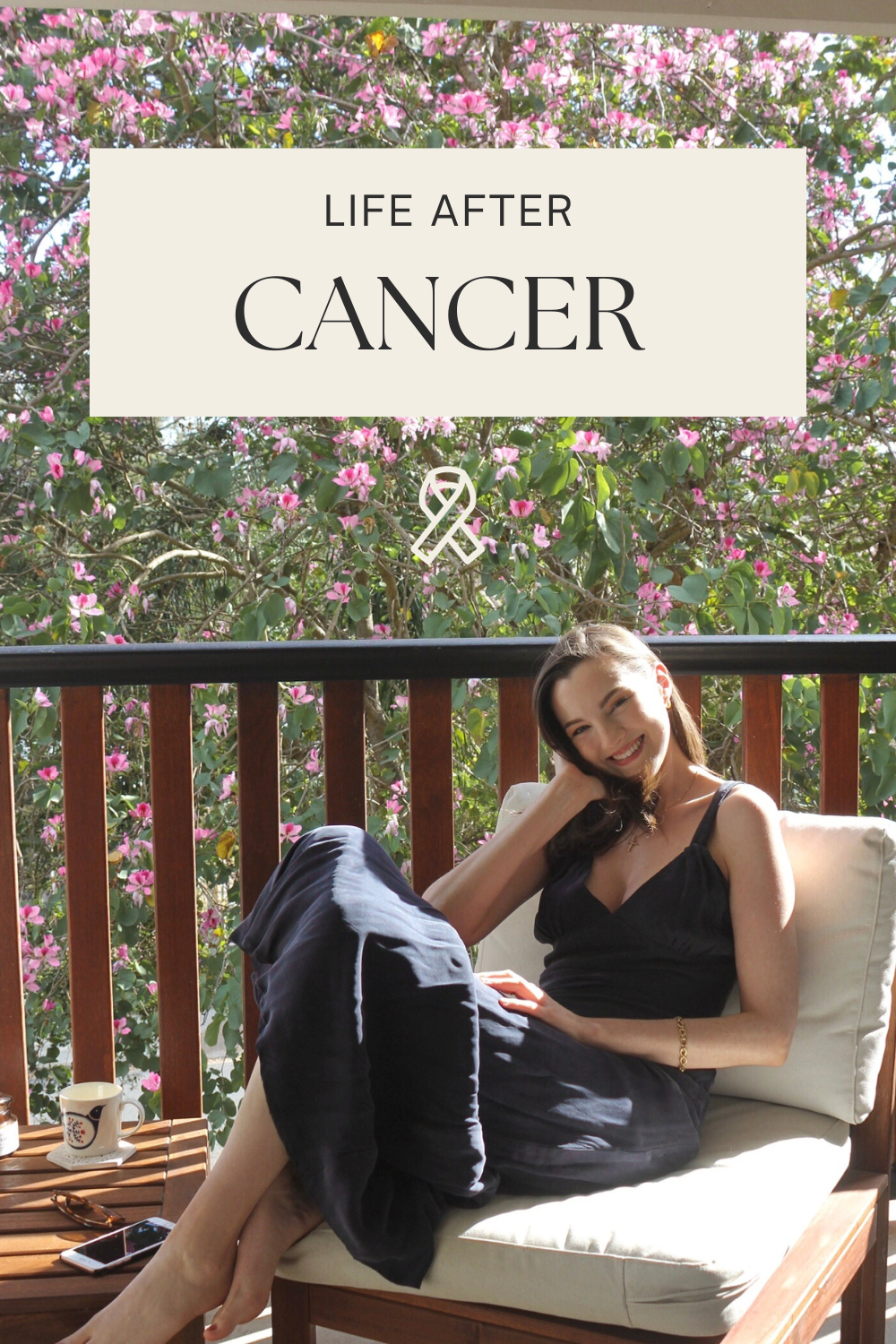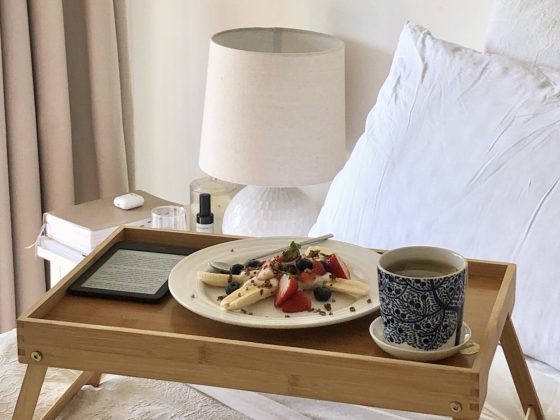
For those that don’t know, in 2020 I was diagnosed with Hodgkins Lymphoma, and not long ago I celebrated three years cancer free.
Whilst being a member of the cancer club is something I wish I could cancel my subscription for, there have been some truly good things that have come from it. One of those is the friendships I’ve made along the way. The second is having a deeper insight into areas of life that often aren’t accessed so young. Thirdly, it’s being able to help others going through cancer; whether it’s an ear to listen, or advice to make their journey a little smoother.
Today, I get to touch on that last point. In this post, I want to share with you tips for life after cancer. Survivorship is the most incredible gift, but it can also be a difficult transition and come with it’s own set of challenges. If you’re entering into this transition, I hope you find this post useful and you don’t feel so alone in your struggles.
Be patient with yourself.
When I was nearing the end of chemo, a sweet nurse had said to me, “You know how patient you’ve had to be through all this treatment? You’re going to need to be just as patient with yourself after treatment”.
That nurse was so right. After treatment, your patience will continue to be tested.
Despite how badly you may want to jump straight back into life as normal, your body has been pushed to it’s limits and it will need time to recover. Be patient with yourself and allow your body time to heal and work through fatigue and any other lasting side effects.
Know that recovery isn’t linear and there will be ebbs and flows. It can be disheartening as you enter through another valley, but know that it won’t last. It’s also important to not compare your recovery process to others, because everyone’s body reacts so differently to the treatments.
Note: if you live in Australia and you’re self-employed, you may be eligible for financial support whilst you recover. Speak to your haematologist/oncologist and Services Australia for advice.
Take care of your mental health.
Unsurprisingly, adolescents and young adult (AYA) cancer survivors are at an increased risk for experiencing mental health issues after cancer. This is why it’s so important to take care of your mental health after finishing treatments.
Life after cancer can be a very confusing time. You may only just be starting to process what you’ve been through, you may be dealing with fear of relapse; you may feel completely disconnected to your pre-cancer self and those around you; and you may be dealing with potential implications treatment has caused.
There’s a lot to process and unpack during this time. And it’s usually at this point where your support system starts to dwindle, leaving you feeling isolated under a heavy burden. If you are struggling, I encourage you to communicate what you’re going through to those you can trust, or a psychologist trained in oncology. There are also wonderful Facebook groups, such as Cancer Chicks Australia, where you can connect with people that are going through similar things.
And for anyone that needs a reminder: it’s ok to allow yourself to work through these difficult emotions. I think sometimes we can feel guilty for experiencing these emotions because we know how fortunate we are to be done with treatments. But know that this is all a part of the recovery process.
You determine when to stop wearing your wig.
If treatment has caused hair loss and you currently wear a wig, you may experience some pressure to ‘showcase’ your new hair as it starts coming through. I just want to remind you that when you transition back to your real hair is entirely up to you.
The decision to wear a wig or not wear a wig is a very personal decision and is based on many different factors (most of which people may not understand unless they’ve experienced it themselves). Don’t let other people pressure you, do what is right for you.
I showcased my real hair once I had a short pixie cut, but still wore a wig on and off depending on what I was doing. On the other hand, I know many people who continued to wear a wig until their hair was at least shoulder length. There’s no right or wrong way to do it!
Tips for managing chemo-brain.
Chemo brain refers to the changes in your memory, concentration and the ability to think clearly. Not everyone struggles with chemo brain and for those that do, it may be in varying degrees. With that said, I really struggled with chemo brain for quite some time after chemo. Here are four things that have helped.
- Try to push through with mentally stimulating tasks, like reading or playing an instrument. I pushed through chemo brain by reading, writing, puzzles and playing the piano. And even though it was disheartening at first, it did eventually help to improve my cognitive functioning.
- Don’t add too much to your plate too quickly, because you can get easily overwhelmed. It can take months, or years, for life to get moving at the speed it used to. Just be patient with yourself. You may also need to communicate this with others, delegate tasks or even just ask for help with certain things.
- Avoid multi-tasking and focus on one thing at a time.
- Make good use of planners. Chemo brain made me incredibly forgetful so I would use Notion, calendars, reminders and alarms to organise my life and not forget anything.
Focus on nutrition.
Nourishing your body can help with the recovery process. Try to eat plenty of vegetables, fruits, wholegrains, legumes, nuts and seeds, as well as some quality lean meat (and/or meat alternatives), poultry, dairy (and/or dairy alternatives) and seafood.
Eating a varied diet will help to make sure that you’re consuming an adequate amount of different nutrients. This can help to support your immune system, your digestion, your mental health, and so much more.
Here are some tips to help you get started:
- Build balanced meals. Check out my post on how to do this.
- Adapt your recipes to include more vegetables and legumes.
- Snack on vegetables, fruit, nuts and seeds.
- Eat fish a couple of times a week.
- Try to cook more meals at home.
I also just want to remind you to embrace balance. After cancer it’s easy to become overly anxious about how things may impact your health, but know that your body can handle all foods in moderation.
Move your body.
Unfortunately, fatigue can last long after treatments end. One of the best ways to counteract this is by incorporating exercise (as counter-intuitive as it may sound). Start small and slowly build your way up. If you need help or extra support in this area, I highly recommend reaching out to an exercise physiologist.
I experienced significant fatigue after cancer, so I started re-building my stamina by introducing small daily walks. Both myself and my Mum would walk through the botanic gardens, as it provided plenty of places to sit down when I needed and all kinds of gradients. Better yet, research has shown that exercising in nature can improve your mental health. As my energy levels improved I incorporated basic strength training and have continued to gradually increase this.
Don’t put your life on hold for check ups.
Anyone that has gone through cancer knows just how nerve-wracking the post-treatment check ups are. In the first year I remember starting to feel the nerves come on a month before my check up. With that said, I’m happy to report that these check ups do get easier every year that passes.
If possible, I encourage you not to put your life on hold for these check ups. Keep your mind busy with fun projects, spend time with loved ones and have things to look forward to. And when the nerves hit, find tools that help you to cope (e.g. breathing exercises, the ‘54321 method‘ or prayer) and share your concerns with people you trust.
Despite the challenges, life can be so wonderful after cancer and I hope these tips can help you on your way there. And if you ever need a friend to talk to, my DM’s are always open (@chantelouisee).
Chante x









